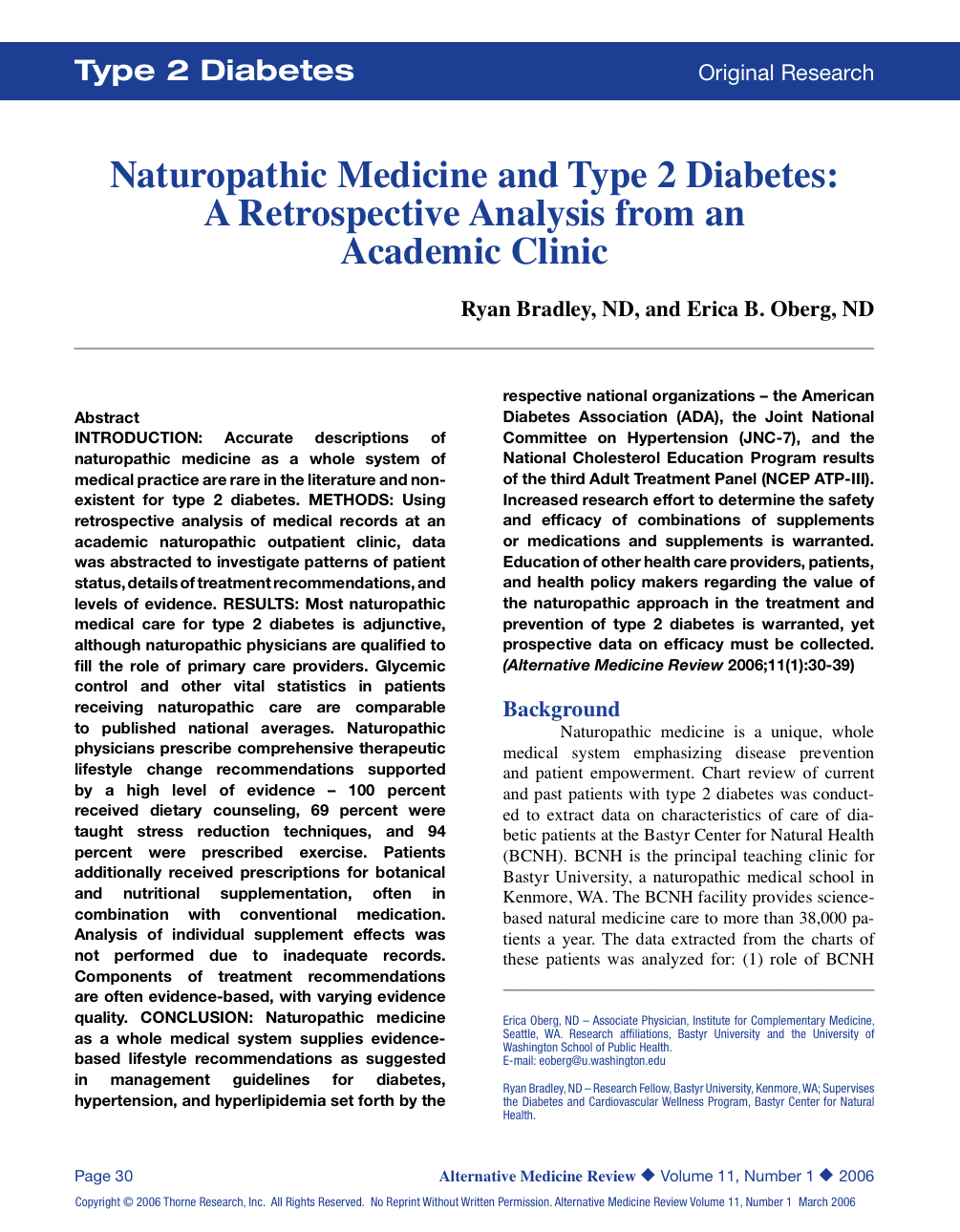Abstract
INTRODUCTION: Accurate descriptions of naturopathic medicine as a whole system of medical practice are rare in the literature and non- existent for type 2 diabetes. METHODS: Using retrospective analysis of medical records at an academic naturopathic outpatient clinic, data was abstracted to investigate patterns of patient status, details of treatment recommendations, and levels of evidence. RESULTS: Most naturopathic medical care for type 2 diabetes is adjunctive, although naturopathic physicians are qualified to fill the role of primary care providers. Glycemic control and other vital statistics in patients receiving naturopathic care are comparable to published national averages. Naturopathic physicians prescribe comprehensive therapeutic lifestyle change recommendations supported by a high level of evidence – 100 percent received dietary counseling, 69 percent were taught stress reduction techniques, and 94 percent were prescribed exercise. Patients additionally received prescriptions for botanical and nutritional supplementation, often in combination with conventional medication. Analysis of individual supplement effects was not performed due to inadequate records. Components of treatment recommendations are often evidence-based, with varying evidence quality. CONCLUSION: Naturopathic medicine as a whole medical system supplies evidence- based lifestyle recommendations as suggested in management guidelines for diabetes, hypertension, and hyperlipidemia set forth by the respective national organizations – the American Diabetes Association (ADA), the Joint National Committee on Hypertension (JNC-7), and the National Cholesterol Education Program results of the third Adult Treatment Panel (NCEP ATP-III). Increased research effort to determine the safety and efficacy of combinations of supplements or medications and supplements is warranted. Education of other health care providers, patients, and health policy makers regarding the value of the naturopathic approach in the treatment and prevention of type 2 diabetes is warranted, yet prospective data on efficacy must be collected. (Alternative Medicine Review 2006;11(1):30-39)

